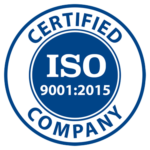Corrosion Inhibitors in Lubricants Protect Your Investments
The Best Rust Prevention Varies for Different Grease and Oil Types
What Is Corrosion?
For many of us our first introduction to corrosion was likely on battery terminals of a childhood toy or game. However, the formation of rust on iron, tarnish on silver, and the blue-green patina that develops on copper are all examples of corrosion.
Corrosion is commonly defined as the degradation of metals, often by chemical action. That degradation occurs when external forces, including water or contamination, attack the integrity of a metallic object or machine. The origin of corrode comes from Latin corrodere which literally means “to gnaw to pieces,” and which today relates to wearing away gradually, by degrees. According to the World Corrosion Organization, corrosion-induced costs amount to 3% to 4% of the gross domestic product of all industrialized nations.
Normally, the circulation of oil during a machine’s operation helps to make sure additives spread throughout internal system surfaces. This movement of fluid encourages proper protection, but once equipment is shut down and stored, standard lubricants often fail to protect dry surfaces from corrosion. That’s why lubricants need corrosion inhibitors.
Situations that require corrosion protection include:
- Long-term storage or transport of equipment or parts
- Regular hot/cold operating/idle cycles that create condensation in equipment
- All forms of metalworking, sometimes with corrosive fluids

Types of Corrosion Inhibitors
Corrosion inhibitors are added to lubricants to protect against the leading causes of corrosion: humidity, water, contamination, acid, and high temperatures. This type of additive reduces or eliminates internal rust and corrosion by neutralizing acids and forming a chemical protective barrier to repel moisture from metal surfaces.
Corrosion inhibitors come in many kinds. One reason for the wide spectrum is because the chemistry that protects one metal is often ineffective in protecting another metal in the same circumstance. Types of corrosion inhibitors include:
- Grease. Yes, grease can be an outstanding rust prevention product!
- Volatile Corrosion Inhibitors. Also known as VCI, where vapors are the source of protection in an enclosed container.
- Oil
- Oil and Solvent Mixture
- Water Based Products that include Wax, Oil, and Synthetics
- Paint, both Permanent and Semi Permanent
Different corrosion inhibitors also can vary in their length of protection, from 1 week (called “in process”) to 1-3 months to 6 months or a year. These ranges can differ depending on whether the lubricant with the corrosion inhibitors is used indoors or outdoors.
Rust preventatives (RPs) are a specific type of corrosion inhibitor that can be applied in order to protect against oxidation. There are many types to choose from, but don’t assume all RPs are the same. The best pick will depend on a variety of factors: application, material you are protecting, storage conditions, desired film, and length of protection. Knowing all these aspects will help you choose the right preventive agent to get the results your specification requires.
What Can Increase or Decrease Corrosion?
- Metal Matters
Copper and alloys corrode more slowly than steel or iron. Why is this one top of the list of importance? Because copper corrosion prevention is important in many systems due to copper and bronze fittings, valves, and piping. Make sure proper yellow metal corrosion inhibitors are present in any fluids coming in contact with brass or copper.
One that not many people talk about but is highly common is Bi-Metallic Rust, sometimes called galvanic corrosion. This occurs when dissimilar metals, coated and uncoated, are resting/layered on top of each other and there is scale or corrosion on one part.
Another example is how non-stainless steel, non-aluminum, cast iron, or low-grade metal parts can get damaged more easily by salt, which creates corrosion or rust.

- Accelerants
Testing for Corrosion Prevention
There are two main test methods for measuring the ability of a grease to prevent corrosion.
- Copper Corrosion Test
- EMCOR Test
In this test, a grease-filled steel bearing is subjected to distilled water or salt water, depending on the bearing’s expected environmental exposure. The bearing is run for one week under alternating dynamic and static conditions. At the end of the test period, the bearing raceway is inspected and given a rating from 0 (no corrosion) to 5 (severe corrosion where >10% of surface is corroded).
At Pack Logix, we have a depth of packaging knowledge and experience with fluids, greases, oils, and lubricants. We enjoy helping our customers keep systems running smoothly, and. Reach out to learn all the ways we can assist your business.


